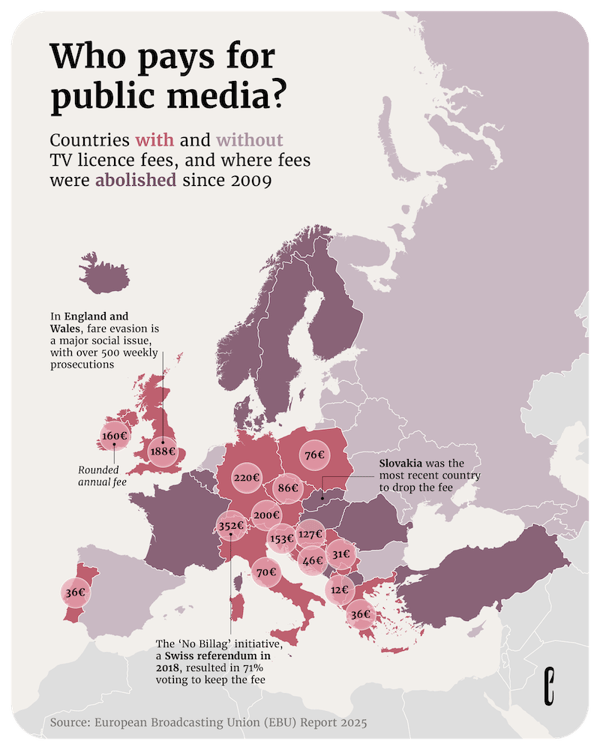TV licence fees remain a highly debated issue in countries that still use them. In recent years, some European countries made changes to their financing models: Denmark, France and Türkiye dropped the fee in 2022, followed by Slovakia in 2023.
In countries where the licence fee still exists, it is usually mandatory, even for those without a TV or radio. Many people view this as unfair, resulting in numerous cases being brought before the courts. The licence fee is intended to fund an independent public service broadcaster that is free from state influence and supported by the public rather than advertising revenue or taxpayers' money. This should ensure stable and predictable financing.
Critics also argue that the model is outdated in the streaming, podcast and social media era, pointing to a lack of public input regarding content. Nevertheless, data clearly shows that higher licence fees lead to better-performing public service media. In most countries, the fee is collected by electricity suppliers or special service providers. In countries without a licence fee, public broadcasting is funded directly from the state budget.

